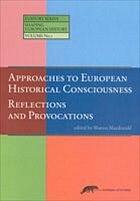What is "European Historical Consciousness"? How do people living in Europe today think about their histories? Does European history unite or divide us? This book presents reflective and provocative essays by an international and interdisciplinary group of scholars and practitioners including some of the leading authorities on the topic. It explores what is meant by "European Historical Consciousness" and why it is important. The volume describes a variety of approaches including the nature of Europe, configurations of historical consciousness like memory and narrative, the politics of history writing, history education and the role of the historian.
EUSTORY's main aim is to encourage young people to undertake an independent and critical examination of the past within the framework of historical research competitions. Apart from the young people themselves, international history teachers, scientists and experts are included in EUSTORY which 14 civil society member organisations have so far joined from Belarus, Bulgaria, Germany, Estonia, Latvia, Norway, Poland, Romania, Russia, Scotland, Slovenia, the Czech Republic, the Ukraine and Wales. (www.stiftung.koerber.de/eustory)
EUSTORY's main aim is to encourage young people to undertake an independent and critical examination of the past within the framework of historical research competitions. Apart from the young people themselves, international history teachers, scientists and experts are included in EUSTORY which 14 civil society member organisations have so far joined from Belarus, Bulgaria, Germany, Estonia, Latvia, Norway, Poland, Romania, Russia, Scotland, Slovenia, the Czech Republic, the Ukraine and Wales. (www.stiftung.koerber.de/eustory)

